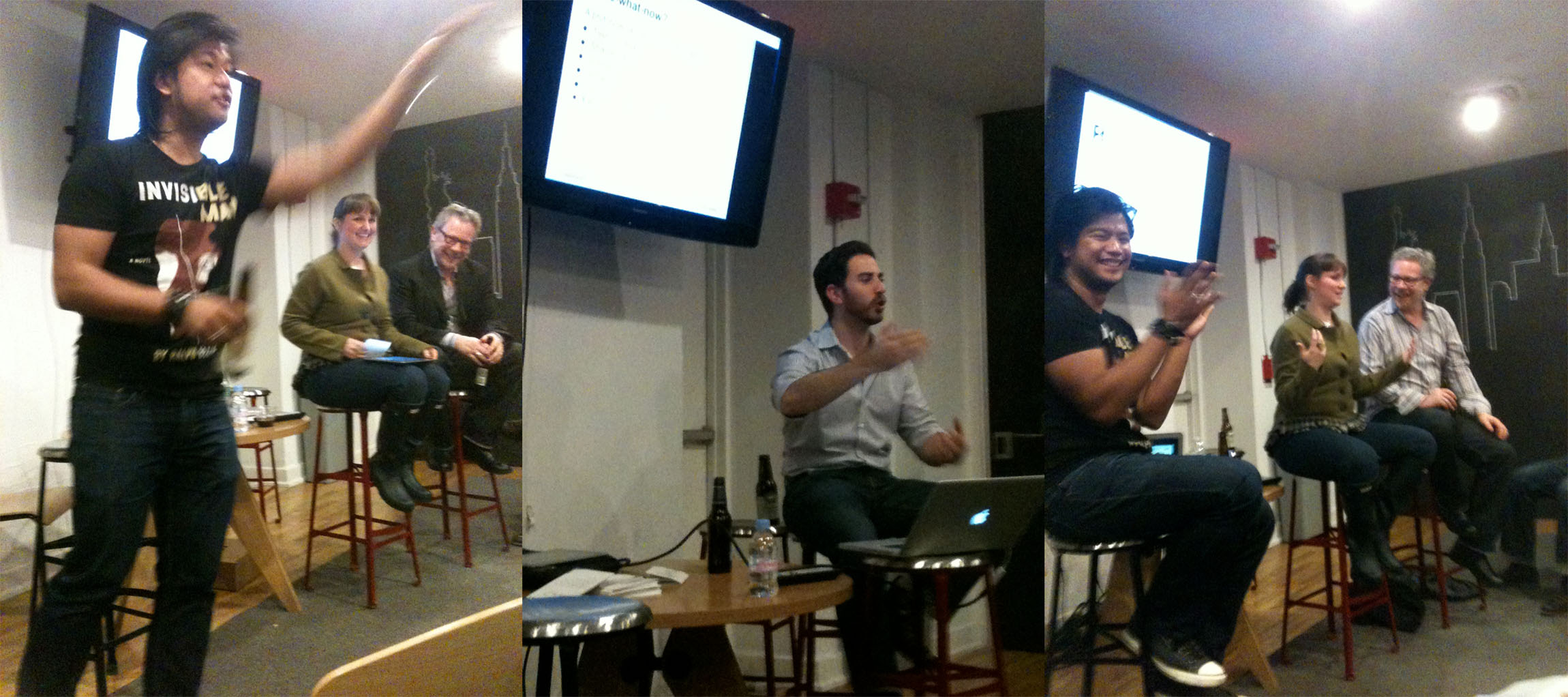“Slow down, I can’t tweet you fast enough,” Glenn Nano shouted. “You’re so tweetable!”
Last Thursday, a group of writers, publishers, developers, journalists, and, perhaps mostly, tweeters, gathered for the panel "Twitter Fiction: Then, Now, and Soon" at the first-ever Twitter Fiction Festival. Mia Eaton, editor-at-large of LIT Magazine, and Richard Nash, Small Demons VP, joined Nano in discussing Twitter as a new medium for fiction and what sort of implications this could have on the literary world. Not surprisingly, the whole event was live-blogged, tweeted, and recorded by panelist and guest alike.
The evening started off quietly enough: a few of us sipping complimentary drinks, all engrossed in our various phones or iPads — most of us on Twitter or, as some would argue, the more writer-friendly Tumblr.
The panel itself was a casual dialogue with the audience. Arguments were made in Twitter's favor, while some writers protested the affair entirely, and still others were just confused by the whole idea of Twitter.
“These are my type of people,” Mia Eaton claimed, referencing the bookworms in the room. She explained how Twitter fiction had been great for her, especially over the past few months with a newborn baby, as all her reading had to be done on her phone, one-handed. Twitter fiction, short and to the point, not only holds a reader’s attention, but it gives the reader a complete story in 140 characters or less.
Some audience members questioned whether this took away from the validity of professional writers. The panelists seemed to agree that Twitter wasn’t a replacement for professional fiction, but a way for amateur or timid writers to put themselves out there. Meanwhile, professional authors can use it to help garner an audience and create a dialogue with readers. Essentially it's a tool: another way to create a living, breathing character. It’s not meant to belittle the craft of writing, but to encourage and support it.
Or as Eaton put it, “Anything that gets more people writing and reading.”
story and pictures by Rebecca Hoffman





 A Black Balloon Publication ©
A Black Balloon Publication ©